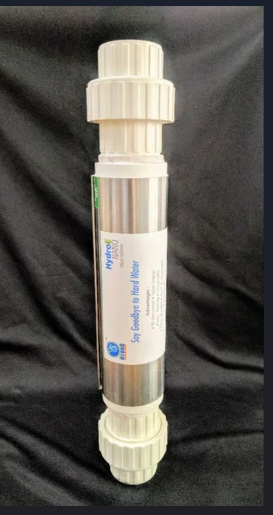A water softener system is designed to reduce the hardness of water, which is typically caused by high levels of calcium and magnesium ions. Hard water can cause a variety of problems, including scale buildup in plumbing, reduced efficiency of appliances, and difficulties with soap and detergent lathering. Here’s a detailed overview of how water softener systems work and their benefits.
How Water Softeners Work
Water softeners use a process known as ion exchange to remove calcium and magnesium ions from the water. The system typically consists of a resin tank, a brine tank, and a control valve.
-
Resin Tank: This tank contains small beads of resin that are coated with sodium ions. When hard water passes through the resin tank, the calcium and magnesium ions in the water are attracted to the resin beads and exchanged with sodium ions. As a result, the water that exits the resin tank is softened.
-
Brine Tank: The brine tank stores a salt solution, usually made from sodium chloride or potassium chloride. Periodically, the system initiates a regeneration cycle, where the resin tank is flushed with the brine solution. The high concentration of sodium ions in the brine solution replaces the calcium and magnesium ions that have been collected on the resin beads. This process restores the resin beads to their sodium-coated state, making them ready to soften more water.
-
Control Valve: This component regulates the flow of water through the system and controls the timing of the regeneration cycle. It ensures that the system operates efficiently and effectively.
Benefits of Using a Water Softener System
-
Prevents Scale Buildup: Hard water can lead to scale accumulation in pipes, appliances, and fixtures. This scale buildup reduces the efficiency of appliances like water heaters and washing machines, leading to increased energy consumption and higher utility bills. A water softener helps prevent this buildup, extending the lifespan of your plumbing and appliances.
-
Improves Soap and Detergent Efficiency: Soft water enhances the performance of soaps and detergents. It lathers more easily, allowing you to use less detergent in laundry and dishwashing. This not only saves money on cleaning products but also helps in achieving cleaner dishes and laundry.
-
Reduces Spotting on Dishes and Glassware: Hard water often leaves spots and stains on dishes, glassware, and shower doors. Soft water helps in reducing these unsightly spots, leaving your dishes and fixtures sparkling clean.
-
Enhances Skin and Hair Health: Hard water can strip natural oils from your skin and hair, leading to dryness and irritation. Soft water is gentler and can help in maintaining healthier skin and softer, more manageable hair.
-
Minimizes Maintenance Costs: By preventing scale buildup and reducing the strain on appliances, water softeners can help minimize maintenance and repair costs. This can result in significant long-term savings.
Choosing the Right Water Softener System
When selecting a water softener, consider factors such as the size of your household, water usage patterns, and the hardness level of your water supply. Systems come in various capacities and configurations to suit different needs. It’s also important to choose a system with efficient regeneration cycles and low salt consumption to ensure both cost-effectiveness and environmental sustainability.
In summary, a water softener system is a valuable investment for anyone dealing with hard water issues. By effectively removing calcium and magnesium ions from the water, these systems provide numerous benefits, including improved appliance performance, enhanced cleaning efficiency, and better skin and hair health.
